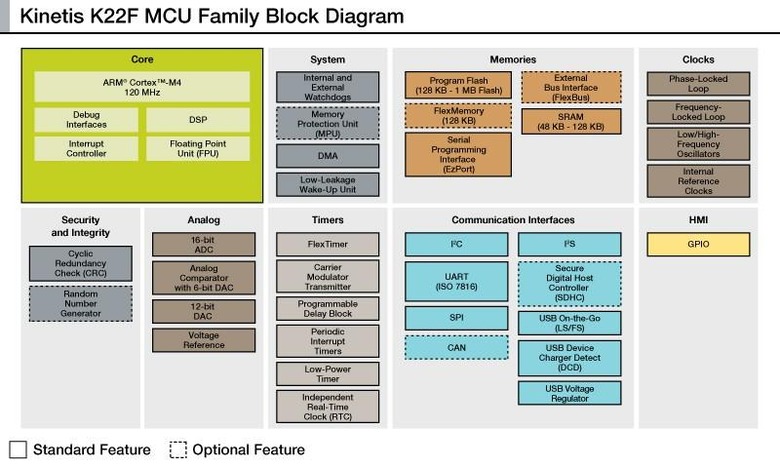Freescale's New IoT Module Is As Thin As A Blade Of Grass
The trend in smartphones these days is to grow in size as well as in power. A budding new market in technology, however, is going in the opposite direction. The so-called Internet of Things, which aims to make almost any appliance or object smarter and connect them to networks and the Internet, requires electronics to be shrunk even further down while retaining ample amounts of processing power. To that end, the latest member of Freescale's Kinetis microcontroller units (MCU), the K22, aims to achieve that goal, by shrinking down to the height of a blade of grass.
Given the popularity of smartphones, tablets, and, more recently, smartwatches, you might be forgiven for presuming that Qualcomm has cornered the market when it comes to small sized processors. However, it is hardly the only game in town and not even the biggest name when it comes to embedded computing. There are the likes of Imagination Technologies, Texas Instruments, and Freescale, all of whom are now trying to reclaim lost time and market through the new IoT opportunity.
The height of the Freescale Kinetis K22 module, 0.34 mm to be exact, makes it the perfect microcontroller for IoT and wearable devices. To be clear, that isn't just a CPU but a complete chip that contains everything that's needed to run very basic applications, like connecting to a network or the Internet, gathering sensor data, and the like.

In terms of power, the Kinetis K22 might be laughable even from a smartwatch perspective. It's ARM Cortex-M4 CPU core runs at 120 MHz, and it can support memories of 48 KB to 128 KB or storage of 128 KB to 1 MB. But that is precisely just the right amount of number and data crunching power that most IoT and really wearable embedded devices need today.
Freescale envisions that its Kinetis K22 will be integrated into actual products in the next few months. Example products include credit card chips, smart fabrics, health monitors, and the like. We will most likely get to see if Freescale's promise will indeed be taken up by manufacturers when CES 2016 rolls around in a few months.
